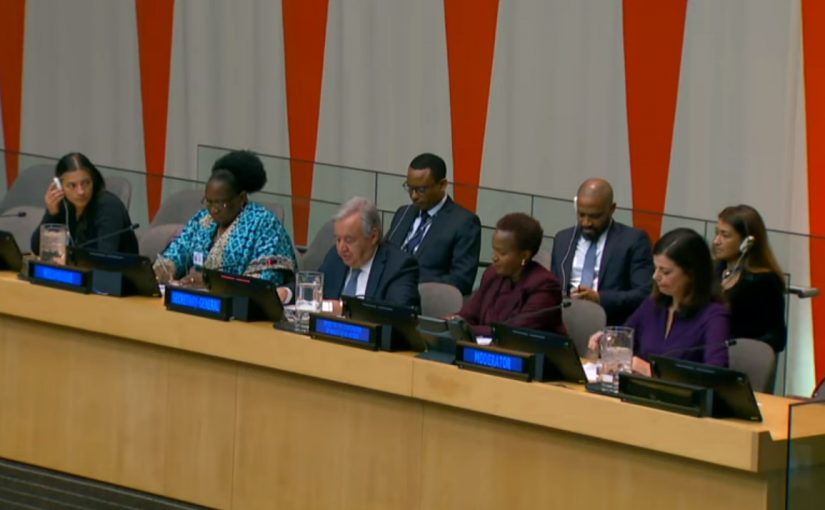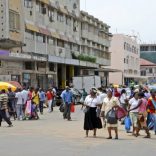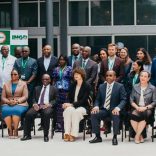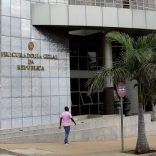Mozambique to cut direct defence budget by 35% in 2025
Mozambique: State has received $16.5M this year from UN emergency response fund

Screen grab: United Nations
Mozambique has received US$16.5 million (€15.2 million) this year from the UN Central Emergency Response Fund (CERF)to mitigate the effects of cyclones, floods, cholera and to support victims of terrorist attacks, it was announced on Wednesday.
“We are convinced that all of us together, each doing our part, will overcome adversity,” said Mozambique’s minister of foreign affairs and cooperation, Verónica Macamo, speaking today at the CERF high-level event to mobilise emergency funds for 2024, at UN headquarters in New York.
United Nations figures released by the ministry of foreign affairs and cooperation indicate that since the creation of CERF in 2006, Mozambique has received more than US$122 million (€113 million) for humanitarian activities in the country.
The latest of these grants was awarded by CERF last September, worth US$6.5 million, for humanitarian aid to Mozambique.
“Just to illustrate, most recently, Cyclone Freddy alone, which hit Mozambique this year, affected around 1.3 million people, causing around 300 deaths and approximately 800 injuries, in addition to extensive damage to economic and social infrastructure, in a context in which the country is still reeling from the devastating effect of Cyclone Idai, which occurred in 2019,” said the Mozambican minister.
CERF is implementing two other grants in Mozambique for programmes to recover from the damage caused by the cyclones that hit the country in the first quarter, one for US$9.9 million (€9.3 million), awarded on April 5, and another for US$4.9 million (€4.6 million), awarded on December 15, 2022, to support displaced people.
According to the information provided by the minister, Mozambique is hosting the Southern African Development Community’s Humanitarian, Emergency and Resilience Operations Centre in Nacala, Nampula province, which “is about to start its activities”.
“The government of Mozambique thus reaffirms its commitment to participate as an active protagonist in managing the impact of climate change in the country and in the Southern African region,” said Macamo.
The minister described the high-level meeting organised by CERF as “an important initiative that bears witness to the United Nations’ commitment to finding solutions to respond to emergencies caused by natural disasters”, while thanking the fund’s donors for the “valuable humanitarian assistance it has provided to Mozambican communities”.
The province of Cabo Delgado has been facing an armed insurgency for six years, with some attacks claimed by the extremist group Islamic State. This insurgency has led to a military response since July 2021 with support from Rwanda and the Southern African Development Community (SADC), liberating districts near gas exploration projects.
The conflict has already displaced one million people, according to the United Nations High Commissioner for Refugees (UNHCR), and caused around 4,000 deaths, according to the conflict registration project, ACLED.
Mozambique is considered one of the countries most severely affected by climate change in the world, facing cyclical floods and tropical cyclones during the rainy season, which runs from October to April.
The 2018/2019 rainy season was one of the most severe on record in Mozambique: 714 people died, including 648 victims of cyclones Idai and Kenneth, two of the biggest ever to hit the country.
In the first quarter of this year, heavy rains and the passage of Cyclone Freddy caused 306 deaths, affected more than 1.3 million people in the country, destroyed 236,000 homes and 3,200 classrooms, according to official government figures.
Opening remarks by António Guterres, Secretary-General of the United Nations, at the Central Emergency Response Fund (CERF) High-level Pledging event for 2024.













Leave a Reply
Be the First to Comment!
You must be logged in to post a comment.
You must be logged in to post a comment.